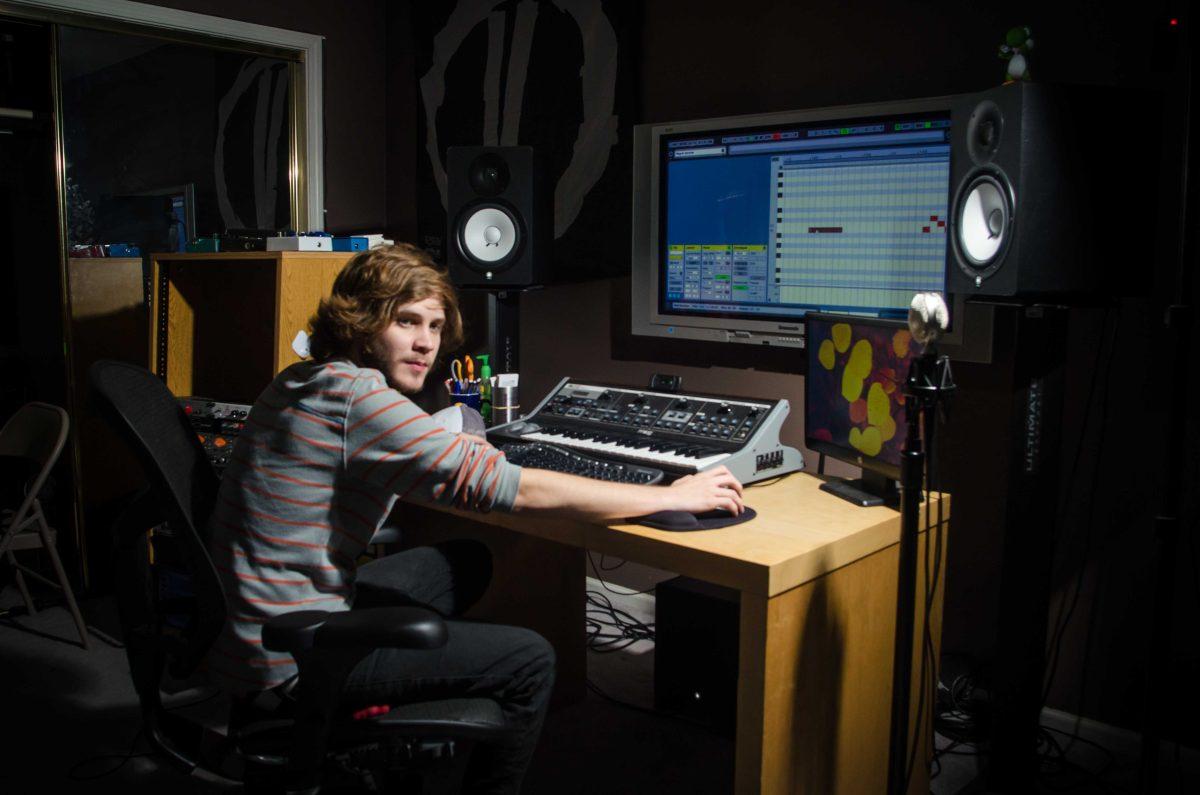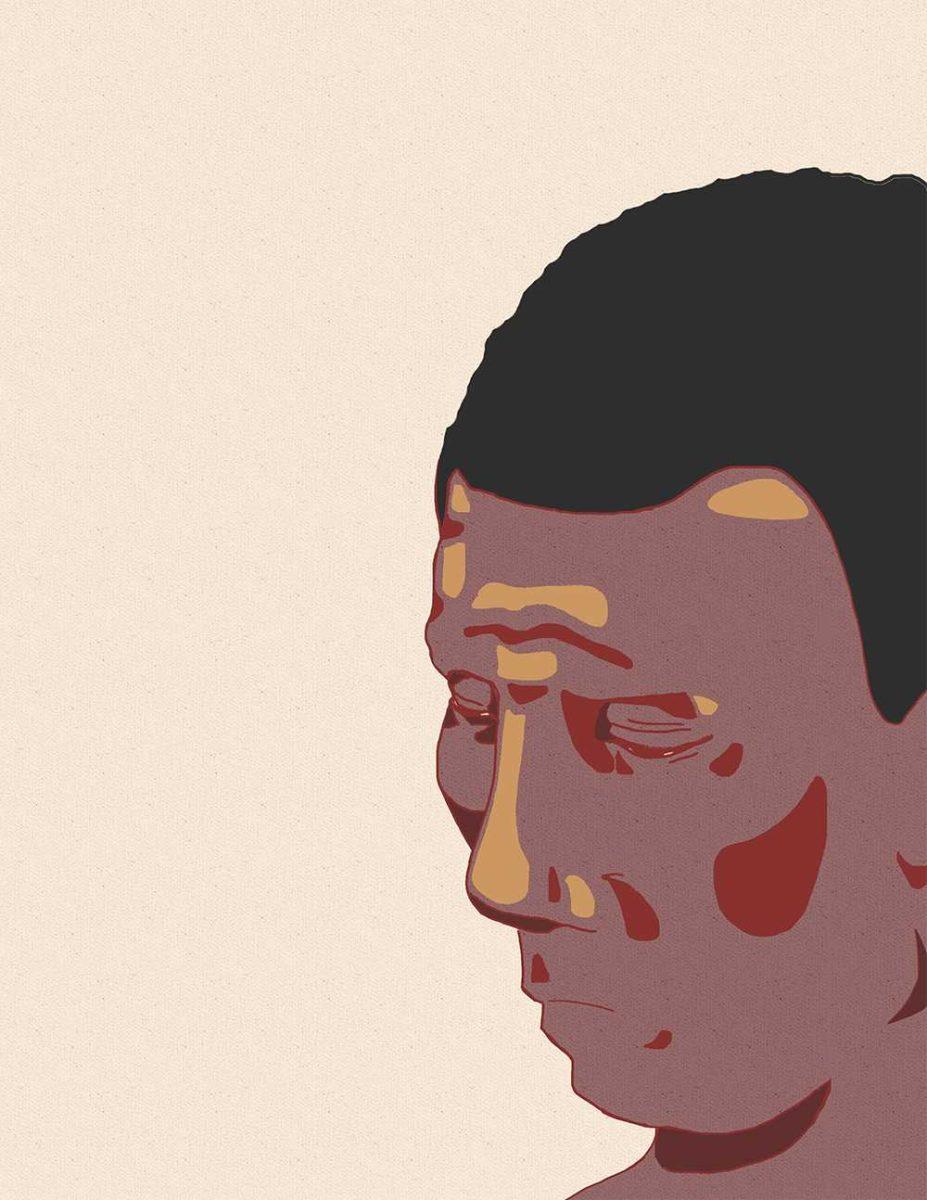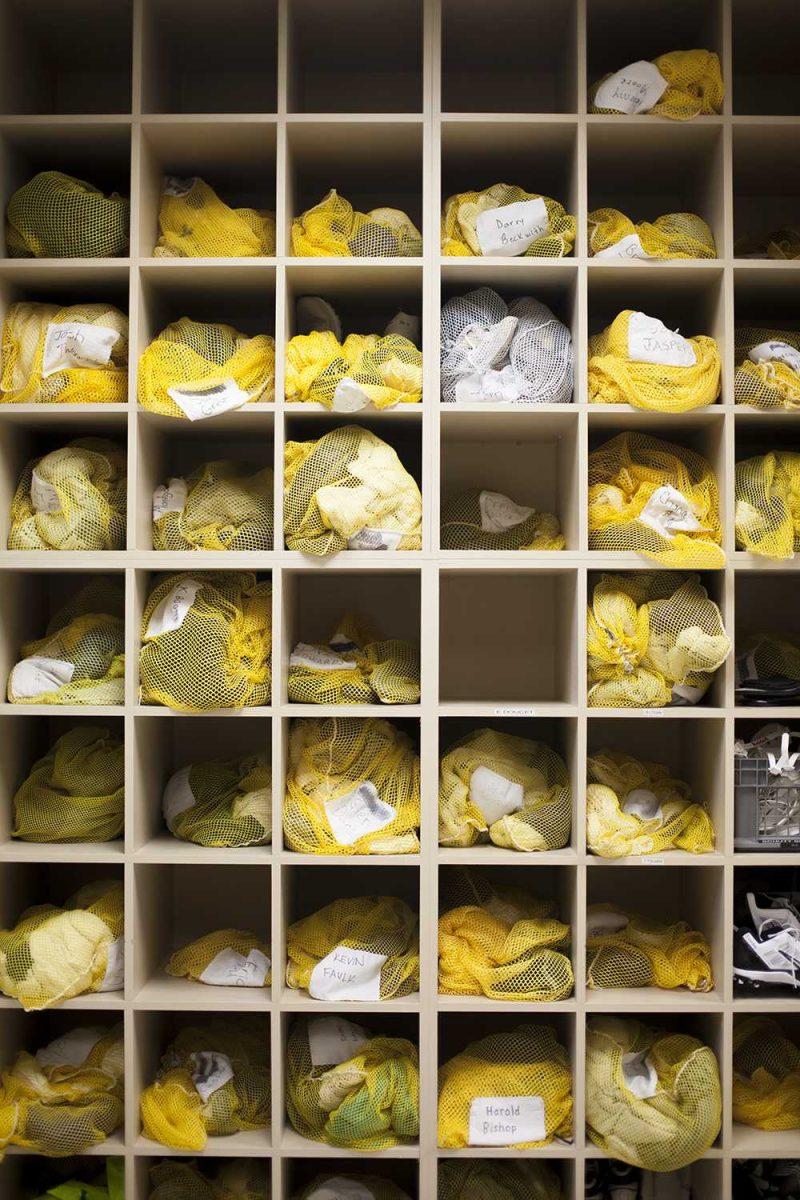While plenty of kids dream of being rock stars when they grow up, few dream of being the man behind the curtain.
But for Adam Carrillo, there’s never been an option other than sound engineering, the process of recording, mixing and mastering music.
Carrillo, general business junior, is the founder of Dizzy Records, a local recording studio Carrillo runs out of his apartment. Though he played in bands as a teenager, he quickly found sound engineering was what he wanted to do.
“I used to play some instruments, mainly guitar,” Carrillo said. “I just did that for fun, I never intended to be a musician by trade or anything like that. But playing those instruments led me to engineering, and I’ve been focused on that ever since.”
The job of the sound engineer can be a tedious one. While a band can record a song in a few hours, Carrillo often spends days tweaking each song to get the right sound. Like most engineers, he believes the importance of the process is underestimated by many.
“There’s tons of music out there that is really good, in terms of the level of talent and creativity of the people playing it,” Carrillo said. “But a lot of that talent can be lost when the mixing and mastering isn’t done properly. Plenty of decent bands sound terrible because they don’t have a good engineer.”
Though he was born in Georgia, Carrillo’s father had an oil industry job that moved the family to Michigan, Argentina, Texas, then to Dubai for Carrillo’s last three years of high school. Throughout the moves, Carrillo taught himself how to mix and engineer music, purchasing simple equipment and reading through a number of guides to hone his skills.
“The fact that I’m self-taught, I don’t see it as a barrier of any kind,” Carrillo said. “I didn’t know much about this stuff when I picked it up, but my dad’s an engineer, so my mind works that way too. I feel much more confident in my skills since I learned, from ground zero, how to do what I do and how to be good at it.”
Constantly moving around the world also allowed Carrillo to make connections with a variety of musicians, from rappers to members of hardcore bands.
“Through email and stuff like that, bands can record in a studio halfway around the world and send me the file to mix and master,” Carrillo said. “Currently, I’m working on some stuff with a guy I met when I was living in Dubai. The time abroad certainly gives me an advantage.”
Carrillo officially set up Dizzy Records when he moved to Baton Rouge. His first studio was located in his apartment in Southgate Towers. For a year or so, he worked by himself, purchasing the equipment necessary to properly master music and elevate himself above the average setup.
Eventually, Carrillo expanded his crew and now has three additional engineers, along with a friend who constructs recording setups and is jokingly referred to as the studio’s contractor by Carrillo.
Carrillo has also moved into a different apartment near Tigerland with better acoustics. He said he’s most proud of the living room, which inexplicably has the acoustics of an ideal recording studio. The difference, he said, is that plenty of studios pay millions of dollars to get a room that sounds exactly like his living room.
Rather than establish a studio around his living space, Carrillo has essentially converted his apartment into a studio with a kitchen and bedroom attached to it. The apartment is spacious, and Carrillo keeps everything surprisingly in order. Carrillo is friendly with his neighbors, who have never complained about the noise. It’s a testament to his professionalism, something that local bands say sets him apart.
“He may be a young guy, but he’s more professional than most people we’ve worked with locally,” said Reid Guillory, guitarist for Bosco Stomp, a band that frequently records at the studio. “There are a lot of local studios, but I’ve never met anyone who knows what they’re doing more than Adam.”
Though the job of the sound engineer is often overlooked, Carrillo said he takes pride in what he does. He knows he may not be noticed by casual listeners, but that doesn’t bother him.
“The most rewarding thing for me is when a band comes in here, and they haven’t found their sound yet, they haven’t found the thing that makes them stick out,” Carrillo said. “When I can do that for someone, when I can mix a record that the band feels represents them perfectly, I’m really happy with myself.”
Carrillo said it is difficult when his musical tastes get in the way of what some clients may want. But at the end of the day, he said, it’s up to the client.
“I work with a band, I won’t name them, but they’re huge Nickelback fans and they want their music to sound similar to Nickelback,” Carrillo said. “Nickelback, Creed, I hate all of that shit. I’ve flat-out told these guys, ‘If your song came on the radio, I’d change the station immediately.’ But they’re some of the nicest guys to work with and some of my best clients. They’re always happy with the end results and even though I may not like the song, it makes me happy to know I’ve done exactly what they want.”
Always keeping the future in mind, Carrillo has a distinct plan for Dizzy Records. He said he let school get away from him in the fall semester, so he’ll be stepping back from engineering to focus on school in the spring.
“During the fall, there were weeks at a time that I just didn’t go to class because I was so focused on my job,” Carrillo said. “So my friends sat me down and had an intervention where they basically told me ‘Get your shit straight, go to class so you can graduate.’ So that’s what I’ll be doing while they run stuff here [at the studio].”
But ultimately, he said, he wants Dizzy Records to be his full-time job.
“I’ve got a good group of guys who will be keeping the studio up when I can’t watch over things 24/7,” Carrillo said. “Really, the future of this place all comes down to where we go in the next five years. But I know recording and engineering is what I want to do with my life, no matter where I do it.”







